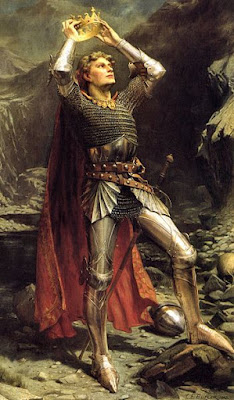But I am now reading Humankind by Rutger Bregman (a wonderful xmas present I just received), and I am more than willing to change my attitude. As Bregman remarks early on in his treatise, "our grim view of humanity is also a nocebo (1)." Meaning that, if we see our neighbors as dipshits ('scuse my French), they will be dipshits. A self-fulfilling prophecy that we would all, I think, wish to avoid.
It is the Law of Attraction in full effect. We get what we expect to get. "We are what we believe," Bregman states. "We find what we go looking for. And what we predict, comes to pass."
The problem is that we have been trained to be cynics, to view even kind acts as being conducted for selfish reasons at best (2). Interestingly (and alarmingly, I might add), when economics professor Robert Frank tested his students' generosity, he found that the longer they studied economics, the more selfish they became, and concluded that "[w]e become what we teach."
So instead of focusing on 1001 doomsday scenarios, I wish to shift my focus to more positive potential outcomes for our world instead. I want to believe that humans are more often than not kind to one another, that we all wish for things to be better for everyone, even if we don't always agree on the best way to get there. But we are still trying.I believe that is the reason why the Hopepunk genre was created as well--instead of focusing on dystopian futures where technology allows the worst of our natures to be expressed as in Cyberpunk stories, for instance, Hopepunk novels show the good that could come of it (3). These are the types of messages I would like to focus on in 2021 and onward.
After all, I posit that the most powerful passage in the whole of Victor Hugo's Les Misérables is when Jean Valjean is caught by the police after he stole a silver candleholder from a kind priest. But instead of turning him over to the authorities, the priest tells the cop that Jean Valjean actually forgot the second candleholder (they're a set), for he had given him both. It is a lie, but one that changes the main character's life and worldview around. And for the rest of the story he will strive to reciprocate that kindness with others.
Of course, this doesn't mean that remaining true to this new vision of the world will be easy. It's so much easier to be a cynic than to believe the best of people, just as it's easier to destroy than it is to build. But isn't it so much more worthy a quest?
Notes:
(1) Nocebo is the opposite of placebo. So if instead of giving you a fake pill telling you it's a drug that will cure you, and you thereby do heal from your illness, your Doc tells you she was mistaken and gave you something that makes you gravely sick, you are more than likely to get sick. That's how crazy powerful our mind is.
(2) The news (real and fake) is considered a "mental health hazard" which likes to play on our fears as it's the easiest way to boost viewers with dopamine hits (like cocaine!) that will make them keep watching for more . . . and therefore allow the news stations/services to rake in more dough. How many of us have caught ourselves doom-scrolling? This is the "mean world syndrome," and it leaves those who follow the news feeling sad, depressed, stressed out, and their hearts full of venom for others. I am guilty of this, too, for, with the advent of COVID-19, I ended up spending a lot more of my time checking the news than I used to. Not only tat, but the media is also a tool for controlling "the masses" that political arms love to use (though they don't like to admit to it, as the case with the Cambridge Analytica scandal showed) and has done so--and will continue to do so--for ages, so if we want to be rebels, the best would be to ignore the news as much as is safely possible, and instead focus on living as best we can while holding to high moral standards such as love and kindness.
(3) In this Tor.com article, you can read more about this relatively new genre that aims to refocus our zeitgeist from disillusioned and cynical (hence why we have so many anti-heroes in our TV shows and movies of late) to optimism and other positive traits. Interestingly, for those of you who enjoyed the BBC's most recent The Musketeers series, it was also the reason for the director to bring that series about--he wanted to bring back main characters who, despite their flaws, keep their hopes up, and try to be just and kind no matter how difficult things may get.
















































